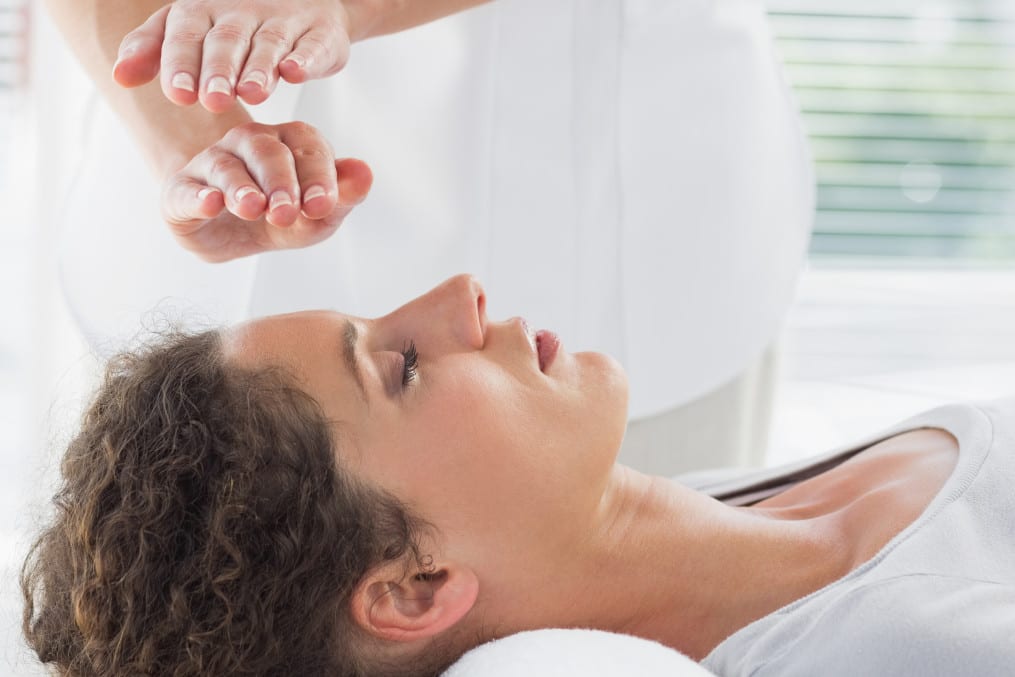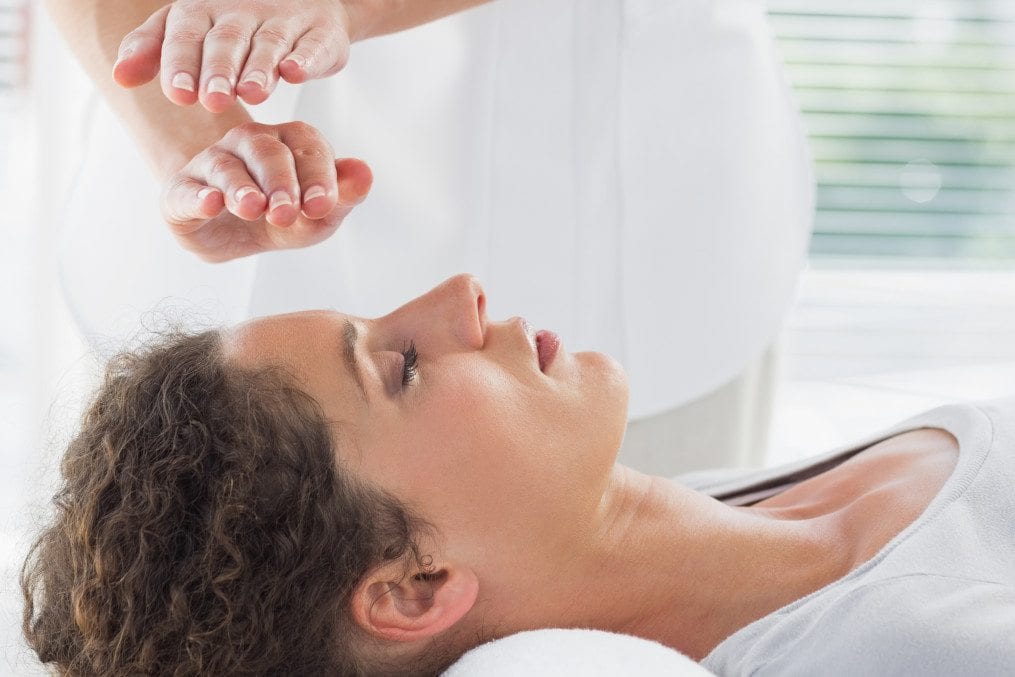What’s the deal with… reiki?
What is Reiki?
Developed by a Buddhist monk from southern Japan in the 1920s, this spiritual-healing technique is a combination of two Japanese words, rei (universal) and ki (life energy). The thinking is, we all have a personal energy field made up of a system of connected ‘chakras’ around our bodies and, when they’re balanced, we’re physically and emotionally healthy. If they become blocked or unbalanced, it impacts our wellbeing. Reiki practitioners, or masters, can summon and direct good energy (happiness and calm) to replace ‘bad’ (anger, stress and frustration), in turn restoring health and wellbeing.
What’s involved?
You lie down, fully dressed and a reiki master places their hands very lightly on or just above the 21 chakras to guide positive energy into your body. They don’t diagnose or offer cures but channel positive energy to improve physical and emotional issues. Some people experience a tingling sensation, others feel warmth or a cooling effect, some fall into a trance-like state and others burst into tears. In the main though, it’s a relaxing experience.
What are the benefits?
Often it’s simply a way to improve general wellbeing, but it can also help when you’re making a change (losing weight or cutting down on alcohol). It’s also good stress relief, and practitioners say it can relieve eczema, lower blood pressure, soothe muscle pain, ease endometriosis, help headaches and migraines and improve symptoms of ME. A single session can help in times of stress, but several sessions may be beneficial for ongoing issues.
Any science behind it?
Not a huge amount, and mainly small studies, but research has found that Reiki can lower blood pressure, speed up healing, reduce chronic pain, increase relaxation, reduce anxiety and lower heart rate. It’s available in some hospitals, NHS community services and support groups; lots of midwives use it; and the NHS recently advertised for ‘Reiki or spiritual healer’ for a breast cancer unit in Epping, Essex.
How do I give it a go?
Check out the British Reiki Association (reikiassociation.net), The UK Reiki Federation (reikifed.co.uk) or The Reiki Council (reikicouncil.org.uk) to find a practitioner who is properly trained and accredited. An hour-long session costs £30 to £70.








